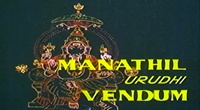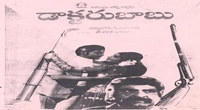"Aryan" (/???ri?n/) is a term that was used as a self-designation by Indo-Iranian people. The word was used by the Indic people of the Vedic period in India as an ethnic label for themselves and to refer to the noble class as well as the geographic region known as ?ry?varta, where Indo-Aryan culture was based. The closely related Iranian people also used the term as an ethnic label for themselves in the Avesta scriptures, and the word forms the etymological source of the country name Iran. It was believed in the 19th century that Aryan was also a self-designation used by all Proto-Indo-Europeans, a theory that has now been abandoned. Scholars point out that, even in ancient times, the idea of being an "Aryan" was religious, cultural and linguistic, not racial.
Drawing on misinterpreted references in the Rig Veda by Western scholars in the 19th century, the term "Aryan" was adopted as a racial category through the works of Arthur de Gobineau, whose ideology of race was based on an idea of blonde northern European "Aryans" who had migrated across the world and founded all major civilizations, before being degraded through racial mixing with local populations. Through the works of Houston Stewart Chamberlain, Gobineau's ideas later influenced the Nazi racial ideology which saw "Aryan peoples" as innately superior to other putative racial groups.
The atrocities committed in the name of this racial ideology have led academics to avoid the term "Aryan", which has been replaced, in most cases, by "Indo-Iranian". The term now only appears in the context of the "Indo-Aryan languages".
Contents
Etymology
The English word "Aryan" (originally spelt "Arian") was borrowed from the Sanskrit word ?rya, ????, in the 18th century and thought to be the self-designation used by all Indo-European people.
Origins
Philologist J.P. Mallory argues that "As an ethnic designation, the word is most properly limited to the Indo-Iranians, and most justly to the latter where it still gives its name to the country Iran.
Sanskrit
In early Vedic literature, the term ?ry?varta (Sanskrit: ?????????, abode of the Aryans) was the name given to northern India, where the Indo-Aryan culture was based. The Manusm?ti (2.22) gives the name ?ry?varta to "the tract between the Himalaya and the Vindhya ranges, from the Eastern (Bay of Bengal) to the Western Sea (Arabian Sea)".
Initially the term was used as a national name to designate those who worshipped the Vedic deities (especially Indra) and followed Vedic culture (e.g. performance of sacrifice, Yajna).
Proto-Indo-Iranian
The Sanskrit term comes from proto-Indo-Iranian *arya- or *aryo-, the name used by the Indo-Iranians to designate themselves. The Zend airya 'venerable' and Old Persian ariya are also derivates of *aryo-, and are also self-designations.
In Iranian languages, the original self-identifier lives on in ethnic names like "Alans" and "Iron". Similarly, the name of Iran is the Persian word for land/place of the Aryans.
Pre-Proto-Indo-Iranians
The Proto-Indo-Iranian term is hypothesized to have proto-Indo-European origins, while according to Szemerényi it is probably a Near-Eastern loanword from the Ugaritic ary, kinsmen.
It has been postulated the Proto-Indo-European root word is *haerós with the meanings "members of one's own (ethnic) group, peer, freeman" as well as the Indo-Iranian meaning of Aryan. Derived from it were words like
- the Hittite prefix ar?- meaning member of one's own group, peer, companion and friend;
- Old Irish aire, meaning "freeman" and "noble"
- Gaulish personal names with Ario-
- Avestan airya- meaning Aryan, Iranian in the larger sense
- Old Indic ari- meaning attached to, faithful, devoted person and kinsman
- Old Indic aryá- meaning kind, favourable, attached to and devoted
- Old Indic árya- meaning Aryan, faithful to the Vedic religion.
The word *haerós itself is believed to have come from the root *haer- meaning "put together". The original meaning in Proto-Indo-European had a clear emphasis on the "in-group status" as distinguished from that of outsiders, particularly those captured and incorporated into the group as slaves. While in Anatolia, the base word has come to emphasize personal relationship, in Indo-Iranian the word has taken a more ethnic meaning.
A review of numerous other ideas, and the various problems with each is given by Oswald Szemerényi.
Usage
Scholarly usage
- Proto-Indo-Europeans: during the 19th century, it was proposed that "Aryan" was also the self-designation of the Proto-Indo-Europeans, a hypothesis which has been abandoned.
- "Aryan language family": the Indo-Aryan languages (including the Dardic), Iranian languages and Nuristani languages,
- Indo-Aryan languages specifically, also called Indic.
Contemporary usage
Indian and Iranian nationalism
The term "Aryan" is used by Indian nationalists and Iranian nationalists to refer themselves.
Nazism and white supremacy
During the 19th century it was proposed that "Aryan" was also the self-designation of the Proto-Indo-Europeans. Based on speculations that the Proto-Indo-European homeland was located in northern Europe, a 19th-century hypothesis which is now abandoned, the word developed a racialist meaning.
The Nazis used the word "Aryan" to describe people in a racial sense. The Nazi official Alfred Rosenberg believed that the Nordic race was descended from Proto-Aryans, who he believed had prehistorically dwelt on the North German Plain and who had ultimately originated from the lost continent of Atlantis. According to Nazi racial theory, the term "Aryan" described the Germanic peoples. However, a satisfactory definition of "Aryan" remained problematic during Nazi Germany.
The Nazis considered the most purest Aryans to be those that belonged to the "Nordic race" physical ideal, known as the "master race" during Nazi Germany. Although the physical ideal of the Nazi racial theorists was typically the tall, fair-haired and light-eyed Nordic individual, such theorists accepted the fact that a considerable variety of hair and eye colour existed within the racial categories they recognised. For example, Adolf Hitler and many Nazi officials had dark hair and were still considered members of the Aryan race under Nazi racial doctrine, because the determination of an individual's racial type depended on a preponderance of many characteristics in an individual rather than on just one defining feature.
In September 1935, the Nazis passed the Nuremberg Laws. All Aryan Reich citizens were required to prove their Aryan ancestry, one way was to obtain an Ahnenpass by providing proof through baptismal certificates that all four grandparents were of Aryan descent.
In December 1935, the Nazis founded Lebensborn to counteract the falling Aryan birth rates in Germany, and to promote Nazi eugenics.
Usage and adaptation in other languages
In Indian/Sanskrit literature
In Sanskrit and related Indic languages, ?rya means "one who does noble deeds; a noble one". ?ry?varta "abode of the ?ryas" is a common name for North India in Sanskrit literature. Manusm?ti (2.22) gives the name to "the tract between the Himalaya and the Vindhya ranges, from the Eastern Sea to the Western Sea". The title ?rya was used with various modifications throughout the Indian Subcontinent. Kharavela, the Emperor of Kalinga of around 1 BCE, is referred to as an ?rya in the Hathigumpha inscriptions of the Udayagiri and Khandagiri Caves in Bhubaneswar, Odisha. The Gurjara-Pratihara rulers in the 10th century were titled "Maharajadhiraja of ?ry?varta". Various Indian religions, chiefly Hinduism, Jainism and Buddhism, use the term ?rya as an epithet of honour; a similar usage is found in the name of Arya Samaj.
In Ramayana and Mahabharata, ?rya is used as an honorific for many characters including Hanuman.
In Iranian literature
Unlike the several meanings connected with ?rya- in Old Indo-Aryan, the Old Persian term only has an ethnic meaning. That is in contrast to Indian usage, in which several secondary meanings evolved, the meaning of ar- as a self-identifier is preserved in Iranian usage, hence the word "Iran". The airya meant "Iranian", and Iranian anairya meant and means "non-Iranian". Arya may also be found as an ethnonym in Iranian languages, e.g., Alan and Persian Iran and Ossetian Ir/Iron The name is itself equivalent to Aryan, where Iran means "land of the Aryans," and has been in use since Sassanid times.
The Avesta clearly uses airya/airyan as an ethnic name (Vd. 1; Yt. 13.143-44, etc.), where it appears in expressions such as airy?fi; dai??h?v? "Iranian lands, peoples", airy?.šaya
Watch movie Aarya online on Amazon
Watch movie Aarya online
Watch The Movie On PrimeBewafa Sanam Full HD Movie Download

Jeena Marna Tere Sang Full HD Movie Download

Unnal Mudiyum Thambi Full HD Movie Download

Lorie Full HD Movie Download

Sanam Bewafa Full HD Movie Download

Vinashak-Destroyer Full HD Movie Download

Banarsi Babu Full HD Movie Download

Sapoot Full HD Movie Download

Pratighat Full HD Movie Download

Ghar Ghar Ki Kahani (1988) Full HD Movie Download
.jpg)
Gharana (1989) Full HD Movie Download
.jpg)
Body Parts Full HD Movie Download

Nandini I Love You Full HD Movie Download

Manathil Uruthi Vendum Full HD Movie Download

Pooveli Full HD Movie Download

Doctor Babu Full HD Movie Download

Youve Got Mail Full HD Movie Download

Rush Hour Full HD Movie Download

Jeeva Full HD Movie Download

Pushpalatha Neti Poratam Full HD Movie Download

Ottesi Cheputunna Full HD Movie Download

Download latest Movie from bollywood
- 1> baaghi 3
- 2> THE SKY IS PINK MOVIE FULL STORY AND REVIEW
- 3> Luka Chuppi
- 4> TO ALL THE BOYS I’VE LOVED BEFORE
- 5> Kabir Singh
- 6> Street Dancer 3D
- 7> Simmba
- 8> Gone Girl
- 9> The Girl Who Lived
- 10> Ludo
- 11> DILWALE DULHANIA LE JAYENGE
- 12> GUILTY
- 13> The Godfather
- 14> Adventures of Rusty
- 15> Sooryavanshi
- 16> Satyameva Jayate 2
- 17> Thappad
- 18> Bhool Bhulaiyaa 2
- 19> KGFChapter 2
- 20> Mardaani 2
- 21> Pinjar
- 22> Shivaji maharaj
- 23> Ek Villian 2
- 24> Hungama 2
- 25> Divergent
- 26> Mumbai Saga
- 27> The Internship
- 28> HIT (telugu)
- 29> Panga
- 30> The perfect date
- 31> 16 December
- 32> Gopala Gopala (Telugu)
- 33> Brahmastra
- 34> Gangubai Kathiawadi
- 35> Manmadhudu
- 36> Nenu local
- 37> Mahanati
- 38> Shatamanam bavathi
- 39> Lagaan
- 40> After
- 41> MOM
- 42> Shamshera
- 43> Raguvaran BTech
- 44> Khakee
- 45> The villain
- 46> OM
- 47> Mr. perfect
- 48> Bueatifull mind
- 49> Hichki
- 50> Gabbar Singh
- 51> Jogi
- 52> Before Sunrise
- 53> Before Sunset
- 54> Before Midnight
- 55> The Big Bull
- 56> Top Gun: Maverick
- 57> The Purge
- 58> The Sky is Pink
- 59> Laxmmi Bomb
- 60> Sadak 2
- 61> Sufna
- 62> Prithviraj
- 63> PK
- 64> Coolie No 1(2020)
- 65> Black Widow
- 66> Dear Zindagi
- 67> Dil Bechara
- 68> PHIR HERA PHERI
- 69> WAR
- 70> Dostana
- 71> RRR: Roudram Ranam Rudhiram
- 72> Maidan
- 73> Dabbang 3
- 74> Chhalaang
- 75> life as we know it
- 76> SherShaah
- 77> Sandeep Aur Pinky Faraar
- 78> Event Horizon
- 79> 83
- 80> Radhe: Your Most Wanted Bhai
- 81> Gunjan Saxena: The Kargil Girl
- 82> Mr India
- 83> Vivah
- 84> Anokha Bandhan
- 85> Ghost
- 86> Bhoot: Part One - The Haunted Ship
- 87> Haseen Dilruba
- 88> Laal Singh Chaddha
- 89> Qismat
- 90> Rajput
- 91> Drive
- 92> Dil Chahta Hai
- 93> Dil Ki Baazi
- 94> Dil Ka Rishta
- 95> Teesri Manzil
- 96> Dil
- 97> Love Aaj Kal
- 98> Khaali Peeli
- 99> Bunty Aur Babli 2
- 100> Atrangi Re
- 101> Gulabo Sitabo
- 102> Jodi
- 103> Suraj Pe Mangal Bhari
- 104> Deewana
- 105> Attack
- 106> Sardar Udham Singh
- 107> Toofan
- 108> THE LOVEBIRDS
- 109> Jersey
- 110> Ginny Weds Sunny
- 111> Thalaivi
- 112> Shiddat
- 113> Angels vs Zombies
- 114> Koi Mil Gya
- 115> Thank God
- 116> Bhuj: The Pride of India
- 117> Hum Aapke Hain Kaun
- 118> The Platform
- 119> Bird Box
- 120> Roohi Afzana
- 121> Torbaaz
- 122> Nikamma
- 123> World War Z
- 124> Extraction
- 125> Train to Busan
- 126> Life of Pi
- 127> SHAADI MEIN JROOR AANA
- 128> Himmat Aur Mehnat
- 129> To All The Boys: P.S. I Still Love You
- 130> Mimi
- 131> Good Newwz
- 132> Shubh Mangal Zyada Saavdhan
- 133> Raabta
- 134> Harry Potter and the Philosopher's Stone
- 135> Harry Potter and the Chamber of Secrets
- 136> Chhapaak
- 137> War of the Worlds
- 138> Harry Potter and the Prisoner of Azkaban
- 139> Harry Potter and the Goblet of Fire
- 140> MURDER MYSTERY
- 141> Shakuntala Devi
- 142> Bachchan Pandey
- 143> Jayeshbhai Jordar
- 144> Sheer Qorma
- 145> Saina
- 146> 'O' Pushpa I hate tears
- 147> Kedarnath
- 148> MS Dhoni The Untold Story
- 149> Chhichhore
- 150> Badhaai Ho
- 151> Unstoppable
- 152> Oz the Great And Powerful
- 153> The Girl on the Train
- 154> Haathi Mere Saathi 2020
- 155> The Conjuring: The Devil Made Me Do It
- 156> Gandhi Se Pehle Gandhi
- 157> The Song of Scorpions
- 158> Srimanthudu
- 159> Hello Guru Prema Kosame
- 160> Beauty and The Beast
- 161> Black Panther
- 162> Charlie and the Chocolate Factory
- 163> Bole Chudiyan
- 164> Fidaa
- 165> Duvvada Jagannadham
- 166> Bruce Lee: The Fighter
- 167> Hyper
- 168> Yaara
- 169> Red (2020)
- 170> Shivam
- 171> That Is Mahalakshmi
- 172> Nishabdham
- 173> Aashram 2020 web series
- 174> Laxmii
- 175> Mismatched
- 176> STUDENT OF THE YEAR 2
- 177> NAIL POLISH
- 178> Ramprasad Ki Tehrvi
- 179> KAAGAZ
- 180> 12 o Clock
- 181> The Power
- 182> bolo hau
- 183> Tribhanga
- 184> JAMUN
- 185> Madam Chief Minister
- 186> Maasaab
- 187> Aadhaar
- 188> Tanhaji
- 189> Bhaagi 3
- 190> Bhootnath
- 191> MALANG
- 192> Jai Mummy Di
- 193> Haathi Mere Saathi 2021
- 194> Shakeela
- 195> Unpaused
- 196> Annayya
- 197> Vamsoddharakudu
- 198> Mrugaraju
- 199> Narasimha Naidu
- 200> Sankranti
- 201> Manasu Maata Vinadhu
- 202> Anjaane
- 203> Apaharan
- 204> Bachke Rehna Re Baba
- 205> Bewafaa
- 206> Roohi
- 207> Radhe
- 208> Zindagi Khoobsoorat Hai
- 209> Yeh Mohabbat Hai
- 210> Yeh Kya Ho Raha Hai?
- 211> The Tomorrow War
- 212> DehradunDiary
- 213> Meri Shaadi Karaoo
- 214> Matruu Ki Bijlee Ka Mandola
- 215> No One Killed Jesica
- 216> Aag Ka Goola
- 217> Eight Million Dollars
- 218> Three Hundred
- 219> Cats and Dog
- 220> Decoy
- 221> Gold Rush
- 222> You Have Got Mail
- 223> Final Destination three
- 224> Tofan
- 225> Jungle
